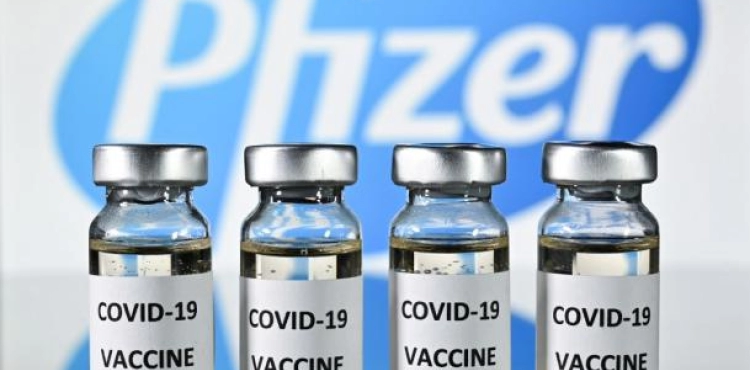The vaccination campaign in Europe against the Corona virus will be helped by Pfizer / Biontech Laboratories, which will provide more doses than expected in the second quarter of this year, amid a hobble in vaccination campaigns due to setbacks related to the Johnson & Johnson and AstraZeneca vaccines.
On Wednesday, Denmark became the first European country to completely abandon the AstraZeneca vaccine, whose use is subject to restrictions in most European Union countries due to the possibility of developing a blood clot.
In contrast, the American-German alliance, Pfizer / Biontec, brought the European Union closer to the date of delivering 50 million doses to the second quarter of this year, to receive them starting this month instead of the last quarter.
This is good news in order to compensate for the shortfall caused by the suspension of the Johnson & Johnson vaccine pending an investigation by the US authorities. The American company was supposed to provide 55 million doses to the European Union in the second quarter of this year.
The European Medicines Agency is currently studying cases of blood clots resulting from this single-dose vaccine and is expected to issue an opinion on it next week.
France, which will allocate the Johnson & Johnson vaccine to those over the age of fifty-five, similar to AstraZeneca, has renewed its "confidence" in the latest vaccine produced by the Anglo-Swedish laboratory.
The two vaccines use the same technology, which is the adenovirus.
In order to restore confidence in the AstraZeneca vaccine, the Cypriot government decided to use it to vaccinate all ministers.
The Russian president, who received the second dose of the vaccine without specifying the type, called on everyone to "follow his example."
Vaccination remains the main weapon to combat the Covid-19 epidemic, which has resulted in more than two million 961 thousand and 387 deaths in the world, according to an AFP census based on results from the health authorities.
The importance of universal vaccination increases with the spread of more infectious variants.
At the Freising Hospital in German Bavaria, signs with the word "mutated" were posted at the entrance to rooms for people with COVID-19.
Most of the patients were infected with the British MAT, while they were younger, "between 40 and 60, the majority of them", according to Dr. Thomas Marks, medical director in the intensive care department.
To curb the Brazilian mutant, France suspended flights to Brazil until April 19.
The European Union has begun formal negotiations with the Biontech / Pfizer alliance to provide it with 1.8 billion doses of the second-generation vaccine.
European Commission President Ursula von der Leyen said, "We may need at some time to boost doses or develop vaccines that adapt to new mutants," noting that the "messenger RNA" technique has proven effective.
The Biontech / Pfizer Alliance and the American laboratory Moderna use this technology, which is faster, easier to adapt, and is currently more effective in confronting the "South African" and "Brazilian" mutants, unlike AstraZeneca.
For its part, Iran announced the suspension of flights with France, while it returned with the United Kingdom, as the progress of the vaccination campaign allowed the closure of restrictions to be gradually eased.
And there is still a big disparity in the world in terms of vaccination campaigns.
In India, which gave 8.1 doses (first and second) for every hundred people, hundreds of people were diagnosed among the crowds that flocked to the banks of the Ganges River as part of the Komb Mela religious ceremony, one of the largest religious gatherings in the year.
In Japan the 100-day Olympic Games Tokyo is a cause for concern. One stage of the Olympic torch was canceled as a local medical official sounded the alarm about the event.
The vaccination campaign in the European Union, where more than a hundred million doses were given, is one of the most advanced in the world, but it is far behind the level recorded in Israel, Britain and the United States.
In Israel, where 61.6% of the population received at least one dose, the first tourists will return, starting May 23.
Denmark announced that it would gradually ease restrictions related to trips abroad, while allowing free movement of European travelers without the need for quarantine, starting at the end of June.
Belgium, where crossing the border for tourism and any other non-essential reason has been banned since January due to the pandemic, announced the lifting of the travel ban within the European Union, starting from Sunday evening. As for travel outside the European Union, European rules remain in place.
Cafes and restaurants in Belgium will reopen their doors and receive customers on the sidewalks from May 8, while Switzerland prepares, with pressure from the most affected economic sectors, to ease measures to combat Covid-19 from April 19.












